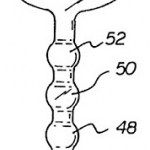law
A while back Dan Vorhaus and Lawrence Moore wrote a fantastic series of guest posts here on Genetic Future on the issue of what would happen to customer data in the event that a direct-to-consumer genetic testing company went bankrupt - here's the introduction, a detailed analysis of the implications of bankruptcy law, and a summary of the implications for consumers.
Lawrence Moore and Emily Sherlock now have a follow-up post over at Genomics Law Report digging into the implications of federal privacy regulations in the event of a DTC genomics company collapse.
The rather worrying…
In the second of three guest posts, lawyers Daniel Vorhaus and Lawrence Moore of the superb blog Genomics Law Report discuss the implications for personal genomics customers if their provider goes bankrupt. In part one of the series (posted yesterday), Vorhaus and Moore dissected the implications of the privacy policies of two personal genomics companies, TruGenetics and 23andMe.
Today's post is an in-depth analysis of the complex legal issues surrounding the treatment of genetic information gathered by a now-bankrupt personal genomics company. For those who get a little lost in…
tags: The Constitution of the United States of America, DNA Evidence, criminal trials, Chief Justice John G. Roberts Jr, Supreme Court, William G. Osborne, justice, ethics
Some days, I am ashamed to be an American. These past two days, I've been astonished and outraged -- and ashamed -- by yesterday's 5-4 Supreme Court decision that prisoners have no constitutional right to DNA testing that might prove their innocence. This decision was inspired by Alaska prison inmate William G. Osborne's petition to be allowed to undergo DNA testing -- at his own expense -- to establish whether he is…
I promised you some updates on the Google Books Settlement, so here you go. Things are definitely getting interesting.
First, I mentioned earlier that I was going to attend a panel on the Google Book Search Settlement here in DC, featuring representatives of Google, the publishers, and the Internet Archive. ITIF, which organized the panel, has made the entire thing available online; I've linked to it at the bottom of the post, because it's over an hour long.
Anyway, it was interesting to hear the (very civil) differences of opinion between Dan Clancy, the Engineering Director for Google Book…
I'm off to visit the Supreme Court tomorrow, so I thought I'd share some law news for a change. In a landmark patent decision, Federal Circuit Judge Richard Posner has ruled that the sex toy shown above is "obvious."
You can read the explanation at Patently-O, but suffice it to say that the gap between the legal sense of the word "obvious" and its colloquial sense may be as wide as the gap for "theory" (as in, "but evolution is just a theory.") Honestly, I would not have known this was a sex toy if I hadn't been told. It looks like a bottle opener. Perhaps the dry design schematic leaches…
Arguably the biggest news story of the week was the release by the Obama Administration of four Justice Department memos from 2002 and 2005 that were used to justify CIA torture of detainees. An analysis by Jeffrey Smith in today's Washington Post tries to explain the context and the mindset that led to the twisted logic found in these memos:
The four Justice Department memos to the CIA's top lawyer that were released last week reflect an effort by Bush administration appointees to create finely tuned justifications for harsh interrogation techniques, all under a blanket of secrecy covering…
It's just not Google's week. A mob of angry villagers north of London formed human chains and chased off the Google Maps car (no word whether they had torches). Microsoft is all up in Google's business (to be precise, they're funding a team at New York Law School's Institute for Information Law and Policy, led by a former Microsoft programmer, which is weighing in on the pending settlement of Google's book-scanning lawsuit). And it's not just Microsoft that's taking aim at Google: the NYT has an overview of the many parties, from librarians to law professors, who have serious doubts about…
Thanks to a sterling effort by a group of dedicated science bloggers and blog-readers, the whole Jeni Barnett MMR radio show has been transcribed for your reading pleasure.
Browse it, read it, blog it, be shocked, be amazed, tell your friends, etc etc.
OBVIOUS DISCLAIMER: This is a transcript pulled together by lots of people working late into the night. There will be mistakes, I'm sure, so use it as a tool to skim the show before listening to the bits that interest you. A recording of the show is available on Wikileaks, see here. You can also listen to each part via YouTube here.
The…
I guess this just goes to show how out of touch I am with things going on in Texas after being gone for almost three years. I didn't know until I saw it on a ScienceBlogs homepage buzz that Chris Comer--who was forced out of her job as the Texas Education Agency's director of science curriculum last November for forwarding an innocuous evolution-related email--is suing to get her job back. You can see the full lawsuit here. I think it's always a bit risky when we put science on trial (as could easily happen here if this isn't settled out of court), since it takes scientific judgments out…
On Monday, the Supreme Court agreed to hear Winter v. Natural Resources Defense Council, a case regarding the Navy conducting sonar training exercises in the proximity of marine mammals--some of which are threatened or endangered species. A large body of evidence indicates that these sorts of sonar exercises--which generate extremely loud underwater sounds--damage the hearing of these animals and disrupt their behavior, often leading to beached whales. And, at their worst, these exercises have been linked to scores of whale deaths--likely from decompression sickness as the whales panicked…
(This is adapted from my public lecture, Afraid of the Dark: How We Know What We Can't See.)
Let's go back over 200 years ago, to 1781. William Herschel (left) discovered the planet Uranus, noticing that an object, as bright as a star, was actually moving relative to the other stars. The other five inner planets (besides Earth) were known for over 2000 years before that. But it was thought for a long time that Saturn was the farthest one.
But it clearly isn't; as you can see with modern telescopes, Uranus is a super-interesting planet, rotating on its side, surrounded by rings and moons.…
You have got to be friggin' kidding me!?
Kathleen Seidel, blogger at neurodiversity.com, has been subpoenaed by Rev. Lisa Sykes and Seth Sykes to appear in their case against the Bayer company. Their case alleges that mercury additives to vaccines caused their son's autism.
Now Seidel is a blogger who has taken repeated issue with both the theory that mercury in vaccines causes autism and their tactics in pressing this position. It would appear that a recent post -- The Commerce in Causation which details the particularly slimy behavior of one Mr. Clifford Shoemaker, a personal injury…
The arguably wacky premise behind a New York Times article this Saturday is that the Large Hadron Collider (LHR)--slated to be the world's most impressive particle accelerator when it's up and running later this year--could inadvertently produce an Earth-destroying black hole. Or, that's at least what a couple of guys in Hawaii think, and they're pursuing a lawsuit in federal court there to stop it. (Note: the LHR is located in CERN... in Switzerland.)
Despite cries of "propaganda" from the plaintiffs, scientists aren't having any of that, and are trying to put all of this to rest with…
The Guardian reports today that Rowan Williams, the Archbishop of Canterbury, raised eyebrows last night when he suggested that the UK ought to recognize sharia law. Sharia law, or Islamic law, forms the basis of the legal systems in Islamic theocracies, but is often practiced informally within other societies, particularly on matters such as marriage and divorce.
The idea that the UK--a society that like Europe at large has almost fully rejected the shackles of religious tyranny--would take such a huge leap backwards is almost unthinkable. Not only that, but one of the fundamental pillars…
Newsweek has a story online today about a passage, in a book published by Wiley, that was recently discovered to have been plagiarized (D'oh!) from Wikipedia. Fellow ScienceBlogger Shelley of Retrospectacle gets a mention, though, for her run-in with Wiley earlier this year over her inclusion of a few figures from a Journal of the Science of Food and Agriculture article in a blog post... a post that just so happened to be slightly critical of the article's press release. From Newsweek:
In an ironic wrinkle, this isn't Wiley's first embarrassing encounter with new media. In April, Shelley…
Thanks to Marginal Revolution for this astonishing story. It refers to a man who sued his wife's new lover for damages on the grounds that the new beau had alienated his wife from him. And the guy won!
All Arthur Friedman wanted to do was liven things up in the bedroom. He and his wife, Natalie, had been married for ten years, and things were getting a bit, ahem, stale. Instead of the usual suspects -- lingerie, porn, toys, weekend get-a-ways -- Arthur had one tiny request: he wanted to watch his wife engaging in sexual acts with other men and women. (We imagine her response was something…
Jeffrey Rosen has an excellent piece in the NYTimes magazine about the increasing use of neurological arguments in the courts:
One important question raised by the Roper case was the question of where to draw the line in considering neuroscience evidence as a legal mitigation or excuse. Should courts be in the business of deciding when to mitigate someone's criminal responsibility because his brain functions improperly, whether because of age, in-born defects or trauma? As we learn more about criminals' brains, will we have to redefine our most basic ideas of justice?
Two of the most ardent…
Stuart Taylor has an interesting article on Supreme Court predictions in the National Journal. He doesn't see a dramatic shift rightward happening:
Abortion. The Roberts Court has already voted in a big abortion case, on the constitutionality of the federal Partial-Birth Abortion Ban Act of 2003. But we probably won't know who won until June.
Pro-choicers noisily fear, and pro-lifers hope, that the Court will uphold this congressional ban on a late-term abortion procedure likened by critics to infanticide because the fetus is destroyed when mostly outside the womb. In the process, many…
Mandatory sentencing laws are disliked by many, and for good reason. Judges often criticize these laws for taking away their judicial sovereignty, while others decry the inherent disparity in which they affect minorities and those of lower socioeconomic status. They often lead to inordinately severe punishments for arguably minor, generally drug-related, crimes. The good news is that, as The New York Times reported yesterday, there is reason to believe that some of the more extreme of these mandatory sentencing laws may change under the new Democratic Congress.
Examples of why these laws…
A 17-year-old man under suspicion for attempted murder is refusing to have a 9-mm bullet removed from his forehead. Prosecutors claim that the bullet, which is lodged just under the skin, could prove that the man was involved in a shootout with a used car-lot owner after taking part in a gang-related robbery of the lot.
Prosecutors say it will prove that Bush, 17, tried to kill the owner of a used-car lot after a robbery in July. And they have obtained a search warrant to extract the slug.
But Bush and his lawyer are fighting the removal, in a legal and medical oddity that raises questions…

